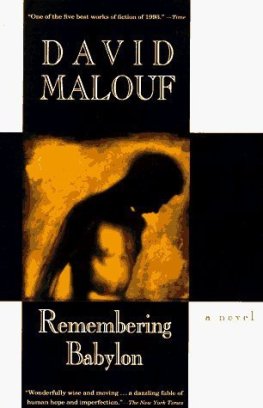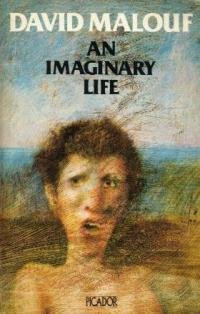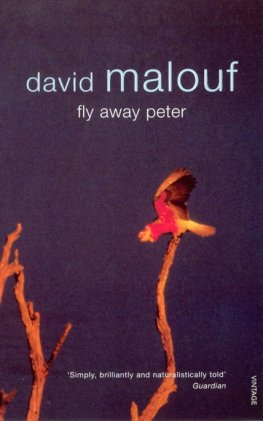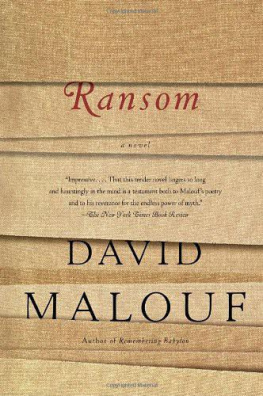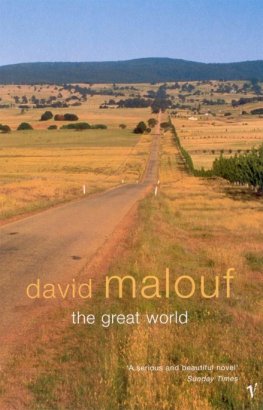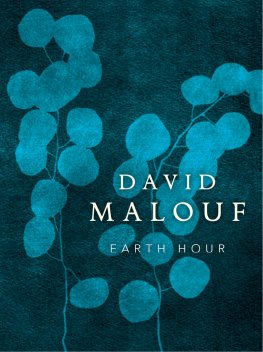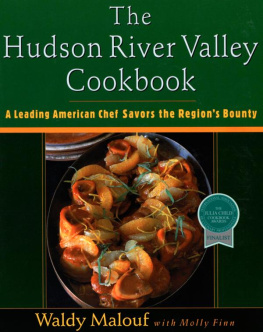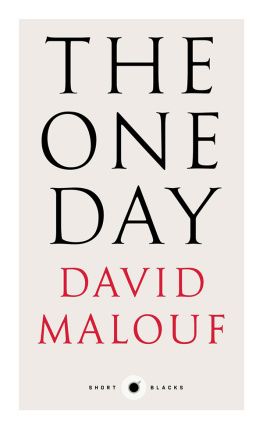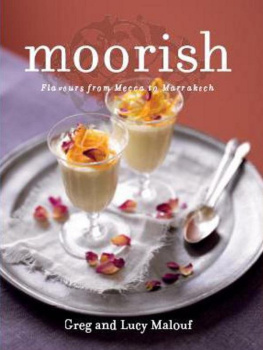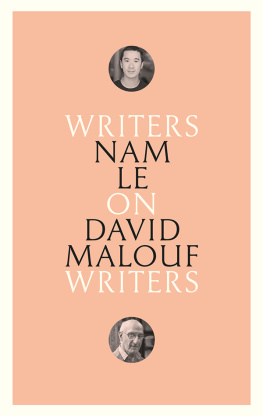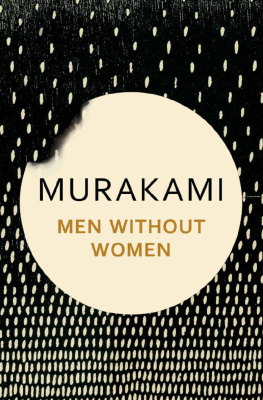David Malouf
The Complete Stories
When I consider the brevity of my life, swallowed up as it is in the eternity that precedes and will follow it, the tiny space I occupy and what is visible to me, cast as I am into a vast infinity of spaces that I know nothing of and which know nothing of me, I take fright, I am stunned to find myself here rather than elsewhere, for there is no reason why it should be here rather than there, and now rather than then. Who set me here? By whose order and under what guiding destiny was this time, this place assigned to me?
Pascal, Penses
When I was in the third grade at primary school it was the magic of the name itself that drew me. Just five hours south off a good dirt highway, it is where all the river systems in our quarter of the state have their rising: the big, rain-swollen streams that begin in a thousand threadlike runnels and fall in the rainforests of the Great Divide, then plunge and gather and flow wide-banked and muddy-watered to the coast; the leisurely watercourses that make their way inland across plains stacked with anthills, and run north-west and north to the Channel Country, where they break up and lose themselves in the mudflats and mangrove swamps of the Gulf.
I knew it was there and had been hearing stories about it for as long as I could remember. Three or four hunting parties, some of them large, went out each year at the start of August, and since August was the school holidays, a good many among them were my classmates. By the time he was sixteen, my best friend, Braden, who was just my age, had been going with his father and his two older brothers, Stuart and Glen, for the past five years. But it was not marked on the wall-map in our third-grade schoolroom, and I could not find it in any atlas; which gave it the status of a secret place, accessible only in the winter when the big rains eased off and the tracks that led into it were dry enough for a ute loaded down with tarpaulins, cookpots, carbide lamps, emergency cans of petrol, and bags of flour, potatoes, onions, and other provisions to get in without sinking to the axle: a thousand square miles of virgin country known only to the few dozen families of our little township and the surrounding cane and dairy farms that made up the shire.
It was there, but only in our heads. It had a history, but only in the telling: in stories I heard from fellows in the playground at school, or from their older brothers at the barbershop or at the edge of an oval or on the bleachers at the town pool.
These stories were all of record bags or of the comic mishaps and organised buffoonery of camp life plus, of course, the occasional shocking accident but had something more behind them, I thought, than mere facts.
Fellows who went out there were changed that's what I saw. Kids who had been swaggering and loud were quiet when they spoke of it, as if they knew more now than they were ready to let on, or had words for, or were permitted to tell. This impressed me, since it chimed with my own expectations of what I might discover, or be let into, when I too got there.
I stood in the shadows at the edge of what was being told, tuning my ear to the clamour, off in the scrub, of a wild pig being cornered while a kid no older than I was stood with an old Lee Enfield.303 jammed into the soft of his shoulder, holding his breath.
An occasion that was sacred in its way, though no one, least of all the kid who was now retelling it, would ever speak of it that way.
All that side of things you had to catch at a glance as you looked away. From the slight, almost imperceptible warping upwards of a deliberately flattened voice.
In the first freshening days of June, and increasingly as July came on, all the talk around town, in schoolyards and changing sheds, across the counter at Kendrick's Seed and Hardware, along the veranda rails and in the dark public bars of the town's three hotels, where jurymen were put up when the district court was in session, and commercial travellers and bonded schoolteachers and bank clerks roomed, was about who, this year, would be going, and in which party and when.
In the old days, which were still within living memory, they had gone out on horseback, a four-day ride, the last of it through buffalo grass that came right to the horses ears, so that all you had to go on was bush sense, and the smell in the horses nostrils of an expanse of water up ahead.
Nowadays there were last year's wheel-marks. A man with a keen eye, crouched on the running-board of a ute or hanging halfway out the offside cabin window, could indicate to the driver which way to turn in the whisper of high grassheads, till the swishing abruptly fell away and you were out in the shimmering, insect-swarming midst of it: sheet after sheet of brimming water, all lit with sky and alive, like a page of Genesis, with spur-winged plover, masked plover, eastern swamphen, marshy moorhen, white-headed sheldrake, plumed tree duck, gargery teal, and clattering skyward as, like young bulls loose in pasture, the utes swerved and roared among them, flocks of fruit pigeon, squatters, topknots, forest bronzewings
My father was not a hunting man. The town's only solicitor, his business was with wills and inheritance, with land contracts, boundary lines between neighbours, and the quarrels, sometimes fierce, that gave rise to marriage break-ups, divorce, custody battles, and, every two or three years, the odd case of criminal assault or murder that will arise even in the quietest community. He knew more of the history of the shire, including its secret history, its unrecorded and unspoken connections and disconnections, than any other man, and more than his clients themselves did of how this or that parcel of their eighty- or hundred-acre holdings had been taken up out of what, less than a hundred years ago, had been uncharted wilderness, and how, in covert deals with the bank or in deathbed codicils, out of spite or through long years of plotting, this or that paddock, or canebrake, or spinney, had passed from one neighbour or one first or second cousin to another.
When he and my mother first came here in the late Thirties, he'd been invited out, when August came round, on one of the parties it was a courtesy, an act of neighbourliness, that any one of a dozen locals would have extended to an acceptable newcomer, if only to see how he might fit in.
Thanks, Gerry, I imagine him saying in his easy way or Jake, or Wes. Not this time, I reckon. Ask me again next year, eh? And had said that again the following year, and the year after, until they stopped asking.
He wasn't being stand-offish or condescending. It was simply that hunting, and the grand rigmarole, as he saw it, of gun talk and game talk and dog talk, was not his style. He had been a soldier in New Guinea and had seen enough perhaps, for one lifetime, of killing. It was an odd-ness in him that was accepted like any other, humourously, and was perhaps not entirely unexpected in a man who had more books in his house than could be found in the shire library. He was a respected figure in the town. He was even liked. But he wore a collar and tie even on weekdays, and men who were used to consulting him in a friendly way about a dispute with a neighbour, or the adding of a clause to their will, developed a sudden interest in their boots when they ran into him away from his desk.
My mother too was an outsider. Despite heavy hints, she had not joined the fancy-workers and jam- and chutney-makers at the CWA, and in defiance of local custom sent all three of us to school in shoes. This was understandable in the case of my sisters. They were older and would grow up one day to be ladies. It was regarded as unnecessary and even, perhaps, damaging in a boy.


